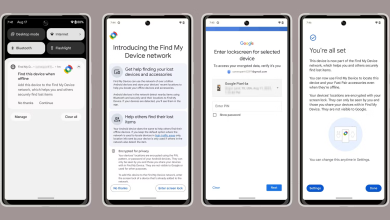Samsung Phones Survive Flipper Zero Attack That Crashes iPhones

Samsung Galaxy devices seem to be immune to the Flipper Zero’s Bluetooth spam denial-of-service attacks, which have been making headlines lately for crashing iPhones running iOS 17.
The Flipper Zero is a tiny, toy-like hacking device that can interact with sub-GHz frequencies, including infrared and RFID devices, NFC cards, and even petrol station gas signs and garage doors. It’s most famous for its ability to hack and emulate Apple devices.
Flipper Zero’s “iOS 17 Lockup Crash” Is Flooding iPhones With Never-Ending Popups, Causing it to Crash
Over the past month, there have been numerous reports of how the “iOS 17 Lockup Crash” feature in the custom Flipper firmware can overwhelm iPhones with BLE (Bluetooth Low Energy) attacks, causing them to crash and become unusable.
How it works is that the Flipper Zero pretends to be an Apple device, like an AirTag, Apple Watch, or AirPods. It then sends a flood of pop-up notifications to the iPhone, which is so overwhelming that it causes the phone to crash.
This bug can be a real pain for iPhone users, especially those who rely on other Apple devices, like the Apple Watch or AirPods. That’s because turning off Bluetooth on the iPhone is the only way to stop the Flipper Zero from crashing it.
But that’s not always convenient, especially if you’re using your iPhone with other Apple devices. For example, if you’re using your AirPods to listen to music or your watch to track your fitness, you don’t want to have to turn off Bluetooth.
Samsung Galaxy Phones Are Apparently Immune to Crashing via Flipper Zero
Despite being bombarded with a plethora of random popups, the Galaxy phones refused to crash or reboot. Google Fast Pair, which uses Bluetooth Low Energy (BLE) to detect and pair nearby accessories with Android devices, appeared to detect the spam attack and stopped showing device pairing popups after a while.
Samsung’s Nearby Device Scanning feature didn’t stop the attack, but at least it kept phones from crashing or rebooting. iPhone users, on the other hand, may have more to worry about, as the never-ending popup exploit seems to have hit iOS devices harder than expected. Hopefully, Apple will roll out a fix soon.
This is all we know for now, but rest assured that we will keep you updated as new information becomes available.
via: Mishaal Rahman





